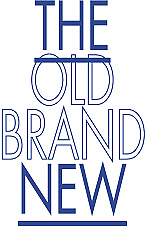THE OLD BRAND NEW raises the question if new is still a viable model or criterion for our naming and assessment of developments in the arts. Since the late 1990s, the practice and mediation of contemporary art manifest another historic awareness. Thinking in terms of ruptures has been put into perspective and there is a tendency towards approaching culture in terms of continuity. Whether they aim at a revival of forms, preoccupations, or strategies developed by artists in the past or at tracing and articulating their still untapped potential, the artists of today seem more inclined to sharing their territory than to demarcating it. Our global reality makes thinking in terms of the ?new? problematic because this implies a linear, progressive notion of time, and once again emphasizes the need for an alternative approach to the term ?new?. How new can new be nowadays?
Speakers:
Dick Hebdige (UK) is an expatriate British media theorist and sociologist, most commonly associated with the study of subcultures, and its resistance against the mainstream of society. received his M.A. from the Centre for Contemporary Cultural Studies in Birmingham (UK). He is best known for his influential book, ?Subculture: Meaning of Style?, originally published in 1979. He is currently a professor of film studies and art studio, as well as director of the Interdisciplinary Humanities Center, at the University of California, Santa Barbara.
His current interests include the integration of autobiography and mixed media in critical writing and pedagogy. He recently contributed to ?Sound Unbound: Sampling Digital Music and Culture? (The MIT Press, 2008) edited by Paul D. Miller a.k.a. DJ Spooky.
Dr. R. Keith Sawyer (US), a professor of psychology, education, and business at Washington University in St. Louis, and is considered to be one of the world?s leading scientific experts on creativity and improvisation. He combines this scientific expertise with a strong hands-on background in real-world creativity. After receiving his computer science degree from MIT in 1982, he began his career with a two-year stint designing videogames for Atari. Since receiving his Ph.D. in psychology in 1994, he has dedicated his career to research on collaboration and creativity. His tenth book ?Group Genius? (Basic Books), published in 2007 and written for a broad audience, draws on his research on jazz and improv theater to show the reader how to be more creative in collaborative group settings and how to change organizations for the better.
His other books on this topic include ?Explaining creativity? (Oxford, 2006) and ?Improvised Dialogues? (Greenwood, 2003).
